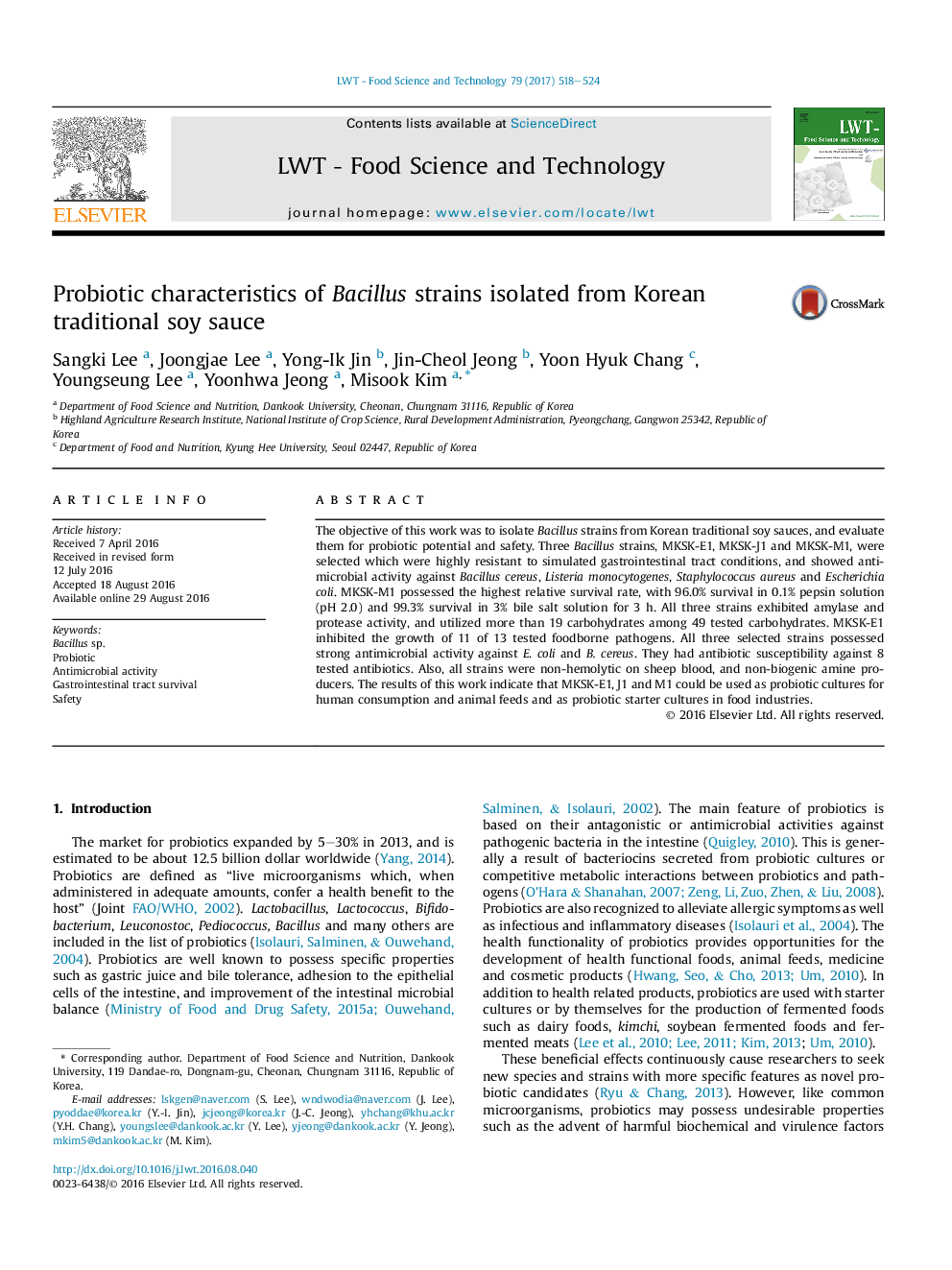| Article ID | Journal | Published Year | Pages | File Type |
|---|---|---|---|---|
| 5768802 | LWT - Food Science and Technology | 2017 | 7 Pages |
â¢Three probiotic Bacillus amyloliquefaciens MKSK-E1, MKSK-J1 and MKSK-M1 isolated from Korean traditional soy sauces.â¢All isolates possessed amylase and protease activity.â¢All isolates inhibited some important pathogens, and survived through gastrointestinal tract passage.â¢All isolates could be potential probiotic and starter culture.
The objective of this work was to isolate Bacillus strains from Korean traditional soy sauces, and evaluate them for probiotic potential and safety. Three Bacillus strains, MKSK-E1, MKSK-J1 and MKSK-M1, were selected which were highly resistant to simulated gastrointestinal tract conditions, and showed antimicrobial activity against Bacillus cereus, Listeria monocytogenes, Staphylococcus aureus and Escherichia coli. MKSK-M1 possessed the highest relative survival rate, with 96.0% survival in 0.1% pepsin solution (pH 2.0) and 99.3% survival in 3% bile salt solution for 3 h. All three strains exhibited amylase and protease activity, and utilized more than 19 carbohydrates among 49 tested carbohydrates. MKSK-E1 inhibited the growth of 11 of 13 tested foodborne pathogens. All three selected strains possessed strong antimicrobial activity against E. coli and B. cereus. They had antibiotic susceptibility against 8 tested antibiotics. Also, all strains were non-hemolytic on sheep blood, and non-biogenic amine producers. The results of this work indicate that MKSK-E1, J1 and M1 could be used as probiotic cultures for human consumption and animal feeds and as probiotic starter cultures in food industries.
